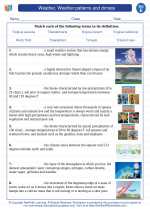Weather, Weather patterns and climate -> family
Family
The family is a fundamental unit of society and is typically defined as a group of people related by blood, marriage, or adoption. Families play a crucial role in the socialization and emotional support of individuals, and they come in various forms and structures.
Types of Families
There are several types of families, including:
- Nuclear family: Comprising parents and their biological or adopted children.
- Extended family: Includes relatives beyond the nuclear family, such as grandparents, aunts, uncles, and cousins.
- Single-parent family: Consists of one parent and their children.
- Blended family: Formed when two people get married or cohabit, bringing their children from previous relationships into a new family unit.
- Same-sex parent family: Comprises a family with same-sex parents and their children, often through adoption, surrogacy, or assisted reproductive technology.
Functions of the Family
The family serves several important functions:
- Emotional support: Providing love, care, and nurturing to its members.
- Socialization: Teaching children societal norms, values, and behaviors through interactions and experiences within the family unit.
- Financial support: Contributing to the economic well-being of its members through income, resources, and financial management.
- Protection: Ensuring the safety and security of its members, especially children and vulnerable individuals.
- Reproduction and caregiving: Facilitating the continuation of the human species and caring for children and other family members.
Study Guide
Questions for Review
- What are the different types of families, and how do they differ from one another?
- What are the primary functions of the family in society?
- How does the family contribute to the socialization of individuals?
- What are some of the challenges that families may face in modern society?
Activities and Assignments
1. Interview a family member or friend to learn about their family structure and the roles and responsibilities within their family unit.
2. Research and create a visual presentation (e.g., a poster or PowerPoint) depicting the different types of families and their characteristics.
3. Write an essay discussing the importance of family in shaping individuals' identities and behaviors.
.◂Science Worksheets and Study Guides Fifth Grade. Weather, Weather patterns and climate

 Worksheet/Answer key
Worksheet/Answer key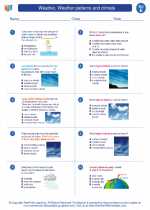
 Worksheet/Answer key
Worksheet/Answer key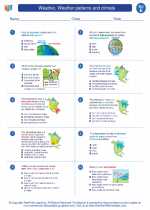
 Worksheet/Answer key
Worksheet/Answer key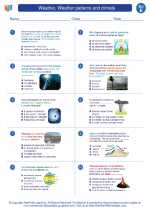
 Vocabulary/Answer key
Vocabulary/Answer key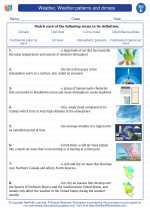
 Vocabulary/Answer key
Vocabulary/Answer key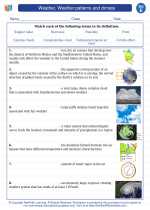
 Vocabulary/Answer key
Vocabulary/Answer key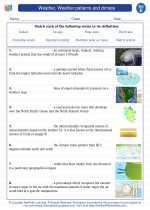
 Vocabulary/Answer key
Vocabulary/Answer key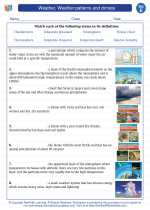
 Vocabulary/Answer key
Vocabulary/Answer key